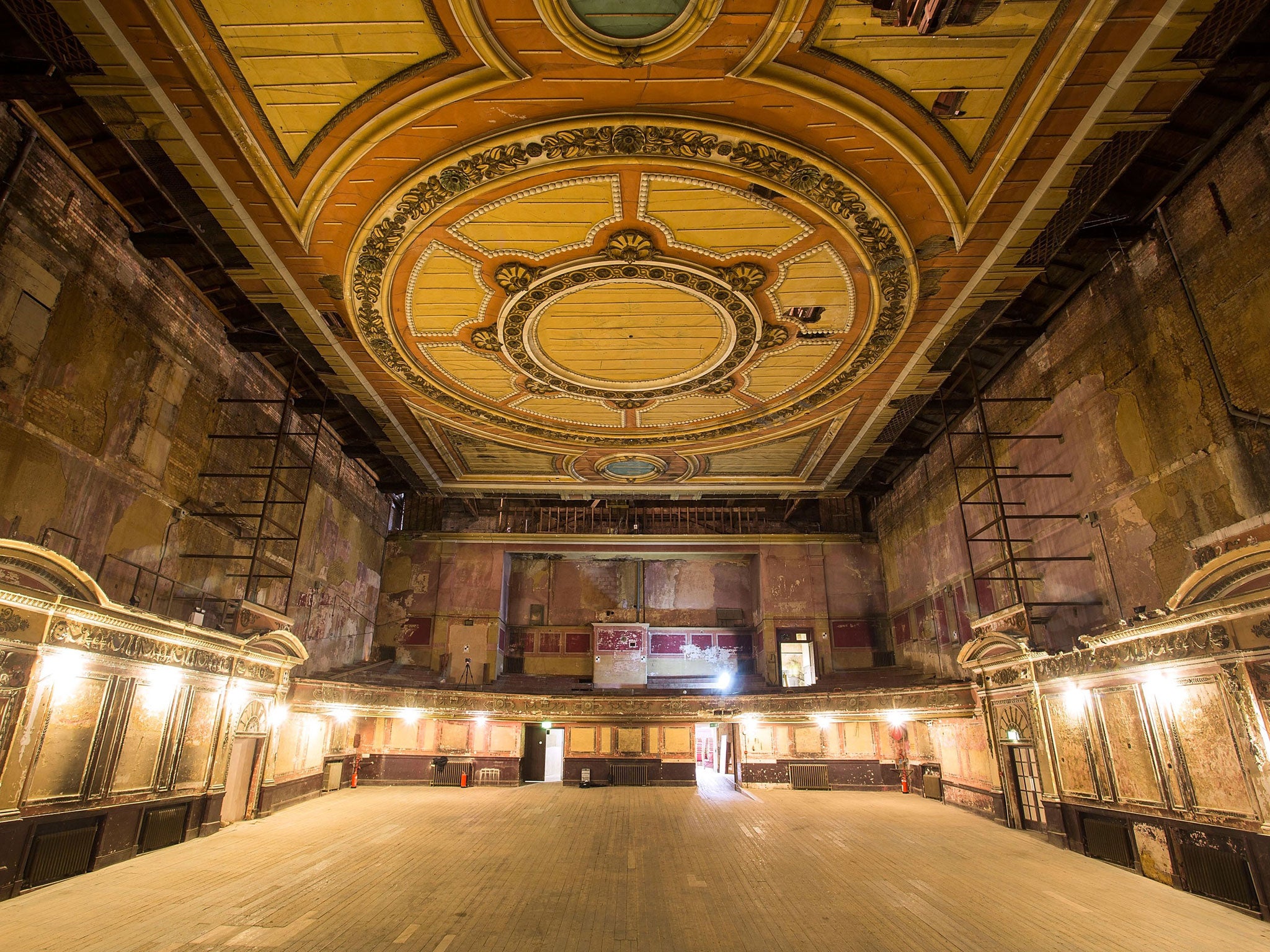Open theatres up to the public during the day, or abolish them
We need to rethink our attitude to West End theatres


Many of London’s theatres should be abolished. The exhortation, somewhat surprisingly, comes from the owner of many of London’s theatres. But Sir Howard Panter, head of the Ambassador Theatre Group, which owns 11 West End venues, has a point.
He says that most West End theatres are “not fit for purpose”. Many are more than 100 years old and ill-equipped to cater for modern-day audiences. There is a problem, of course, that some are listed buildings. But Sir Howard maintained in his speech to a theatre engineering and architecture conference: “The trouble is, there will never be enough room in those buildings for enough leg space, enough bar space, enough showers for artists, whatever it might be. There simply won’t.”
It’s a forceful statement, which shows the vision of Sir Howard, and some other like-minded theatre owners. But, paradoxically, it also shows a lack of vision. Yes, we all know that theatre bars and leg-room need improving. Ditto sightlines. Ditto much else that Sir Howard conveniently doesn’t mention — booking fees, programme content and prices, ticket prices themselves. But just sticking to the physical aspects and comfort, there’s a need for a more imaginative vision.
Let’s rethink our whole attitude to West End theatres. Why, for a start, should they only be open at night. Here are arts venues in the most amazing location, central London. Yet, before dusk falls they offer to the public only a box office. Why don’t West End theatre owners look at what the head of the English National Opera, John Berry, is planning? Realising that his building is brilliantly located on the edge of Trafalgar Square, he intends to open it up to the public in the daytime, and install a coffee bar. Visitors will feel more interested in opera, because they are so close to opera.
In the same way, many theatres — whether rebuilt or not — could be more welcoming to the public during the day. They too could make their bars and coffee areas buzzy daytime destinations. If possible, they could locate those bars or coffee bars in the foyers, adjoining the capital’s most famous streets. They could be meeting places which have a sense of occasion and sense of history, surrounded by pictures of the great performers and productions that have been there over the years.
Theatre owners need to develop a new mind set, a mind set that acknowledges that these are arts venues, and in 2014 any arts venue worth the name has to be open during the daylight hours as well as during the evening. Culture should be the backdrop to our days as well as the focus of our evenings out.
BBC music awards
The director-general of the BBC, Lord Hall, has announced several new initiatives to introduce music to new, young audiences. Every primary school child will have the chance to experience 10 pieces of classical music, and there will be star music ambassadors to inspire children.
One can only applaud all of that. But why did Tony Hall also have to announce that the BBC is to have its own annual music awards, hosted by Chris Evans and Fearne Cotton? Do the arts really need yet another awards ceremony? What can the BBC’s awards achieve that the Brits, Mercury Music Prize, Classical Brits and the like don’t already achieve?
Do we really want another evening of prime time TV taken up with banal speeches, red carpet cliches and all the other paraphernalia surrounding awards ceremonies? As a way of encouraging a love of music, it is an uninspiring idea.
Arts Council transparency
Two weeks ago I complained on this page that the Arts Council was being unaccountable and lacking in transparency by refusing to say which companies were receiving millions of pounds in emergency grants. Many of you contacted me to agree. But one ostensibly disinterested reader, signing himself Mr Jonathan Devereux of St Albans, wrote a letter defending the Arts Council and praising its chief executive.
This struck me as slightly unusual, so I looked up Mr Devereux, and lo and behold it emerged that he was until recently finance director of the Arts Council. He agreed to our suggestion that including this information would be helpful to the reader. I’m sure that he can see the irony of defending the Arts Council from a charge of lack of transparency with a letter that is somewhat less than transparent.
Join our commenting forum
Join thought-provoking conversations, follow other Independent readers and see their replies
Comments